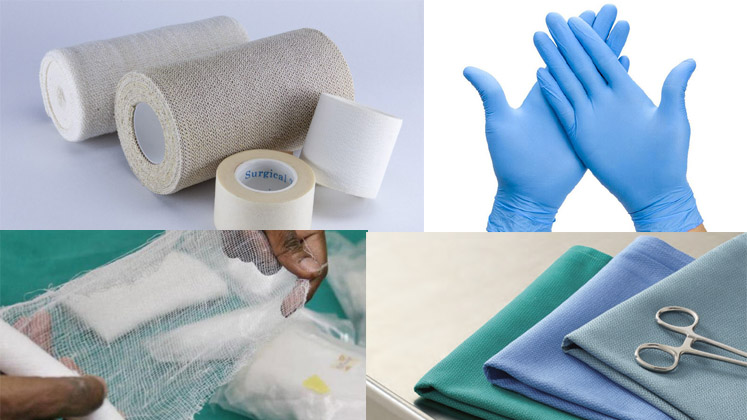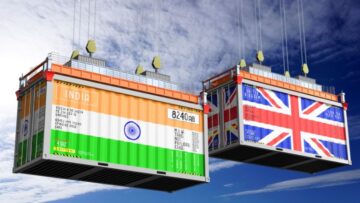As per a research by US-based leading market research and business intelligence company Expert Market Research (EMR), the global medical textiles (meditech – hygiene and medical) market was of about US $ 13 billion in 2020 and it is further expected to grow at a CAGR of 4 per cent between 2021 and 2026 to reach a value of nearly US $ 17 billion by 2026. Rising disposable incomes, concerns and awareness regarding the availability of better offering of healthcare services, technological advancements in products, rising demand from the medical industry, growing demand for sanitary napkins and growing geriatric population are some of the reasons behind this good expected growth. In India, Tamil Nadu is a growing hub for medical textiles products and the interesting aspect is that now companies are expanding in this segment. Recently some companies of this niche product category, announced huge investment in the state.
As far as fresh investment in this domain is concerned, 5 companies have signed an MoU with the State Government and these companies will invest around Rs. 880 crore and are expected to create 4200 jobs. (See Table)
| Companies | Investment (Rs. crore) | Employment | Products |
| Ramaraju Surgical Cotton Mills | 425 | 1600 | |
| Kanam Latex | 310 | 1600 | Latex Gloves |
| Rubfila International Ltd | 100 | 200 | |
| Bapuji Surgicals | 35 | 400 | Medical Disposables
and Hygiene |
| Amaryllis Healthcare | 10 | 400 | Medical Disposables, PPE Kit, Surgical Gowns, IV Cannula, Catheter,Syringes And Hygiene Products |
There are 3 very strong and visible reasons responsible for the growth of medical textiles industry in Tamil Nadu. First and foremost is the availability of raw material as most of the raw materials used in medical textiles are available in the state as the state is having ample production of cotton for spinning, weaving and knitting etc.
Secondly, Coimbatore is the biggest textile hub and a major city of the state having large number of good hospitals as well as textile units. This helps the textile companies to have better R&D and feedback about their products as well as a market also for their products.
The third important reason is the friendly policies of the State Government as the Government has come up with many lucrative initiatives for the investors.
In fact the state’s focus on medical textiles is more than a decade old as in 2008, The South India Textile Research Association (SITRA), Coimbatore was identified for development into a Centre of Excellence (COE) for production of medical textiles products and the focus was to establish there an internationally accredited testing lab, training facilities, IT enabled information centre etc.
The Central Government sanctioned Rs.24 crore for COE and this centre helps the entrepreneurs to enter the meditech segment.
The facilities in the state and instinctive development of the state in textile and medical textile segment is attracting companies of the states to invest in Tamil Nadu. For example, the four- decade-old Bapuji Surgicals, Bengaluru(Karnataka) is mainly into medical disposables and hygiene. The company is coming up with its plant in Krishnagiri (around 91 km from Bengaluru). Similarly, Kerala-based Kanam Latex is one of the leading manufacturers of surgical gloves. The 35-year-old company has two units in Tamil Nadu where it manufactures pre-powdered and powder-free surgical and examination gloves for India as well as for exports. Its upcoming plant is in AMRL SEZ, Tirunelveli which is around 83 kms from its existing plant in Tamil Nadu.
Opportunities innumerable
Medical textiles has been recognised as a new source of business for the apparel export industry and Apparel Export Promotion Council (AEPC) has also insisted to focus on the same. Just a year before, India achieved the second position in the world in medical textiles manufacturing.
It is worth mentioning here that besides exports, Indian domestic market has innumerable opportunities in this medical textile segment as it is one of the fastest growing in India. Higher child birth rates, growing medical tourism are providing further boost for its upliftment.
There are some medical textile products which are imported and not manufactured in India, so there is a huge potential for manufacturing them in India. A research paper of SITRA says that many medical textiles products are classified as medical devices. There is no concrete data available for medical textiles, but 80 per cent of medical devices are imported.
As per a report of Baseline Survey of Technical Textiles in India (2016) Armed Forces, requirement of medical textiles is estimated to be worth Rs. 200 crore. Similarly Government hospitals (central and state) have a major institutional consumption of medical textiles. And it was around Rs. 1070 crore as per this report.
| Major products in medical textiles | Commonly used fabrics |
| Surgical Gowns | Woven |
| Face Masks | Non-Woven |
| Staff Uniforms | Knitted |
| Operating Room Drapes | Others |
| Sterilisation Wraps | |
| Hospital Beddings and Curtains | |
| Wipes | |
| Sanitary Napkins and Diapers |
A Sakthivel, Chairman, AECP on Tamil Nadu as a growing hub for Medical Textiles
Tamil Nadu has traditionally been one of the leading apparel hubs, accounting for nearly 34 per cent of India’s apparel exports. Its total apparel export value was US $ 3968.54 million in 2020-21. The state has approximately 45,000 registered textiles factories and around 10 per cent of which is expected to be in meditech segments.
Established textile value chain, robust textile sector to support the development of new fabrics, availability of skilled and experienced workforce are also in favour of the state.
The new Tamil Nadu Industrial Policy provides further incentives and encouragement for production, capacity building, investment and exports in sunrise sectors like medical textiles. Some of the policies aim to increase exports from the state to US $ 100 billion by 2030.
To provide a thrust to the sunrise sectors, a special package of incentives has been proposed in this policy. In medical textiles, one of the important criteria for enhancing the market, especially the export market is better awareness and compliance to quality and technical standards. This is an area where the industry is still in the process for acquiring knowledge and capacities. Further support in this regard will help in increasing the number of players.
AEPC has set up a dedicated MMF Cell to enhance the production of MMF and medical textile garments.







